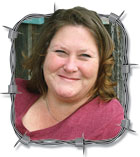 Sometimes the most educated people are not the brightest light bulbs in the package. There seems to be a lack of common sense today, and it shows.
Sometimes the most educated people are not the brightest light bulbs in the package. There seems to be a lack of common sense today, and it shows.
Billions of dollars have been spent studying bovine flatulence and belches, and the connection to methane and greenhouse gas, and climate change. Why? Because a group of “smart” people thought they could save the planet.
The theory of less livestock, and reducing meat and dairy consumption to reduce climate change can be traced back to two sentences in a 2006 United Nations report, titled Livestock’s Long Shadow.
According to University of California Davis Associate Professor and Air Quality Specialist Frank Mitloehner, the statement, “[T]he livestock sector is a major player, responsible for 18 percent of greenhouse gas emissions measured in CO2e (carbon dioxide equivalents). This is a higher share than transport,” was printed in the summary, but not in the report body. Mitloehner, whom I consider one of the brilliant people, has said the statement is not accurate.
“We certainly can reduce our greenhouse-gas production, but not by consuming less meat and milk,” Mitloehner said in a 2006 press release from UC Davis. “Rather, in developed countries, we should focus on cutting our use of oil and coal for electricity, heating and vehicle fuels… The developed world’s efforts should focus not on reducing meat and milk consumption, but on increasing efficient meat production in developing countries, where growing populations need more nutritious food.”
Studies conclude that cattle production is not a significant factor in global warming, but why have farmers become the scapegoats and the villains of all the world’s woes? Because people have forgotten where food comes from.
A national survey revealed that 72 percent of consumers know very little or nothing about farming or ranching. Americans continuously think about food production, but know little about the source of their food: ranching and farming. The same survey showed farmers and ranchers share the same values as consumers on issues related to environmental stewardship and animal care; something the public tends to forget.
Students are required to take certain classes to graduate high school or college, yet no one is required to have agricultural courses. I wasn’t a music major, yet I was required to spend a certain amount of time in a listening lab as a variety of genres blared through headphones. It wasn’t my idea of a good time, but I did what was required.
Requiring students to take such classes to “broaden” their experiences is part of higher education, according to the experts. But our educational system is failing if the majority of college graduates think brown cows give chocolate milk, and food comes from a grocery store.
Unfortunately, practical education, including classes such as agriculture, home economics, driver’s ed, shop and basic finance, are gone in many schools. Yes, some of those skills should be taught at home, but many parents don’t possess these necessary knowledge either.
There is always room for advancements in science and technology, but are we raising a generation of educated idiots?
Show your support for agriculture education in your community by supporting your local Extension and high school agriculture program, and help the next generation bridge the gap back to the farm.
Julie
Julie Turner-Crawford is a native of Dallas County, Mo., where she grew up on her family’s farm. She is a graduate of Missouri State University. To contact Julie, call 1-866-532-1960 or by email at [email protected].






